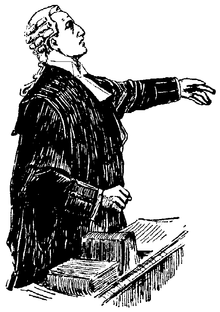As I blogged on Friday - the Supreme Court is forcing the Government to apply the rule of law. This Bill was introduced on Friday and will be law by tomorrow.
There is a link to the parliamentary privilege issue on which I have also commented. The Bill has to have retrospective effect (although bizarrely the Bill only gives this protection from 4th February 2010 [the date the SC quashed the orders concerned] - although as the SC explained the orders were not ultra vires when the SC said they were and quashed them -they were utlra vires on the day they were made - Lord Phillips made this clear at paras 4 and 5 of the judgment) to ensure that the Banks which seized the money have protection because they did so illegally. So the Bill is as set out below - note the last bit in bold - that's because you cannot make criminal that which was not criminal at the time the offence was committed - article 7 ECHR - just like you probably can't take away parliamentary privilege (if it applies) retrospectively from the 'alleged MP expenses malefactors'.
Protection of things done or omitted in interim period
(1) The following provisions have effect in relation to things done or omitted in the
period beginning with 4 February 2010 and ending with the coming into force
of this Act.
(2) Anything done or omitted by a person other than the Treasury that would be
valid, lawful or effectual if—
(a) the Terrorism (United Nations Measures) Order 2001 (S.I. 2001/3365),
(b) the Terrorism (United Nations Measures) Order 2006 (S.I. 2006/2657),
and
(c) the Terrorism (United Nations Measures) Order 2009 (S.I. 2009/1747),
had been validly made under, and every provision of those Orders had been
within the power conferred by, section 1 of the United Nations Act 1946, is
deemed to be valid, lawful or effectual as if those Orders had been so made and
every provision of them had been within that power.
(3) Subsection (2) applies to an act or omission notwithstanding that it is done or
omitted in reliance on or in consequence of something done or omitted by the
Treasury (whether during or before the period mentioned in subsection (1)).
(4) Nothing in this section affects proceedings in respect of anything that is
susceptible to legal challenge on a ground independent of the question
whether any of those Orders was validly made under, or any of its provisions
was within the power conferred by, section 1 of the United Nations Act 1946.
(5) This section does not—
(a) affect any liability of the Treasury in respect of an act or omission that
would be unlawful if this section had not been enacted; or
(b) give rise to any criminal liability.
When your landlord’s landlord is your landlord (and a bit of procedural
irregularity)
-
El-Mouka v (1) Ramsy Property Ltd (2) Home Connect Ltd. Romford County
Court, 8th August 2025 (note of judgment here) This was a County Court
appeal agai...
6 hours ago

The Supreme Court declared the various items of legislation void on 27th January 2010. It was not until 4th February that the court refused to make its earlier judgment prospective-only. Hence, is it not the case that the "interim period" in the Bill ought to be from 27th January? Maybe I am missing something here?
ReplyDeleteThe Court handed down judgment on 27th January 2010 but did not actually make the quashing order until 4th February - but as I say in my blog and as Lord Phillips said on 4th February - the quashing orders merely mark the fact that the orders were ultra vires from when the ink was dry on the signatures of the Ministers signing them! Hence the interim period needs to go much further back....
ReplyDeleteThank you very much for your response in answer to my question. I would agree that the interim period ought to go back much further given that the Orders were declared void ab initio.
ReplyDelete